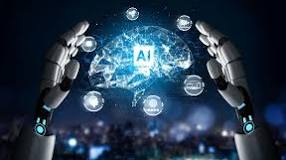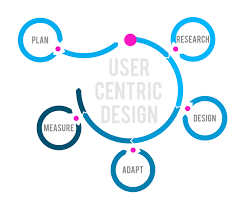Understanding Artificial Intelligence: A Comprehensive Overview
Artificial intelligence (AI) is a transformative technology that has been reshaping industries and redefining the way we interact with the world. From virtual assistants to advanced data analytics, AI is becoming an integral part of everyday life. This article explores what AI is, its applications, and its impact on various sectors.
What is Artificial Intelligence?
Artificial intelligence refers to the simulation of human intelligence in machines that are programmed to think like humans and mimic their actions. The term can also be applied to any machine that exhibits traits associated with a human mind, such as learning and problem-solving.
Key Components of AI
- Machine Learning: A subset of AI that involves the use of algorithms and statistical models to enable machines to improve their performance on a task through experience.
- Natural Language Processing (NLP): The ability of machines to understand and respond to text or voice data in a way that mimics human conversation.
- Computer Vision: The capability of AI systems to interpret and make decisions based on visual data from the world.
- Robotics: The design, construction, operation, and application of robots powered by AI technologies.
Applications of Artificial Intelligence
The applications of AI are vast and varied, impacting numerous industries:
- Healthcare: AI is used for predictive analytics in patient care, drug discovery, medical imaging analysis, and personalized medicine.
- Finance: In finance, AI algorithms are used for risk assessment, fraud detection, algorithmic trading, and personalized banking services.
- E-commerce: Retailers use AI for personalized recommendations, inventory management, customer service chatbots, and dynamic pricing strategies.
- Agriculture: Farmers utilize AI for crop monitoring through drones and sensors, precision agriculture practices, and yield prediction models.
The Impact of Artificial Intelligence
The impact of artificial intelligence extends beyond individual sectors. It has the potential to significantly boost productivity by automating routine tasks. However, it also raises ethical considerations regarding job displacement as automation becomes more prevalent. Additionally, concerns about privacy and data security continue to be pivotal issues as AI systems become more integrated into daily life.
The Future of Artificial Intelligence
The future of artificial intelligence holds immense promise. As technology continues to advance at a rapid pace, we can expect even more sophisticated applications across various domains. Researchers are working on developing general artificial intelligence—AI that can perform any intellectual task that a human can do—which could revolutionize how society functions altogether.
The journey towards fully realizing the potential of artificial intelligence is ongoing. By understanding its capabilities and implications today, society can better prepare for a future where humans coexist with intelligent machines in harmony.
If you’re interested in learning more about how artificial intelligence is shaping our world or want guidance on implementing AI solutions in your business operations—stay informed through credible sources or consult with experts in the field!
5 Essential Tips for Navigating the World of Artificial Intelligence
- Understand the basics of AI algorithms and how they work.
- Stay updated on the latest advancements and trends in AI technology.
- Experiment with coding AI projects to gain practical experience.
- Consider the ethical implications of AI development and usage.
- Collaborate with others in the AI community to learn and grow.
Understand the basics of AI algorithms and how they work.
To effectively navigate the rapidly evolving landscape of artificial intelligence, it’s essential to understand the basics of AI algorithms and how they work. These algorithms are the backbone of AI systems, enabling machines to learn from data, identify patterns, and make decisions with minimal human intervention. By grasping fundamental concepts such as supervised and unsupervised learning, neural networks, and decision trees, individuals can better appreciate how AI technologies are developed and applied across various industries. This foundational knowledge not only demystifies the technology but also empowers individuals to make informed decisions about integrating AI into their personal or professional lives. Understanding these basics is a crucial step toward leveraging AI’s full potential while addressing ethical considerations and ensuring responsible use.
Stay updated on the latest advancements and trends in AI technology.
Staying updated on the latest advancements and trends in AI technology is crucial in today’s rapidly evolving digital landscape. As AI continues to transform industries and redefine traditional processes, being informed about the newest developments ensures that individuals and businesses can adapt and leverage cutting-edge solutions effectively. This involves following reputable sources, attending industry conferences, and participating in relevant online forums or webinars. By keeping abreast of breakthroughs such as advancements in machine learning algorithms, natural language processing improvements, or emerging ethical considerations, one can make informed decisions that align with current technological capabilities and future possibilities. This proactive approach not only enhances competitiveness but also fosters innovation and strategic planning in an AI-driven world.
Experiment with coding AI projects to gain practical experience.
Experimenting with coding AI projects is an excellent way to gain practical experience and deepen your understanding of artificial intelligence. By working on real-world projects, you can apply theoretical knowledge to solve actual problems, which enhances your learning process. Engaging in hands-on coding allows you to explore different AI algorithms, understand their applications, and see firsthand how they perform in various scenarios. Additionally, tackling projects can help you develop problem-solving skills and improve your proficiency in programming languages commonly used in AI, such as Python. Whether you’re building a simple chatbot or developing a more complex machine learning model, experimenting with AI projects provides invaluable insights and prepares you for future challenges in the field.
Consider the ethical implications of AI development and usage.
When developing and utilizing artificial intelligence, it’s crucial to consider the ethical implications involved. AI systems have the potential to significantly impact society, influencing everything from privacy and security to employment and decision-making processes. Developers must ensure that AI technologies are designed and implemented in ways that respect individual rights and promote fairness. This includes addressing biases in algorithms, ensuring transparency in AI-driven decisions, and safeguarding against misuse or unintended consequences. By proactively considering these ethical aspects, stakeholders can help ensure that AI benefits humanity as a whole while minimizing potential harms.
Collaborate with others in the AI community to learn and grow.
Collaborating with others in the AI community is an invaluable strategy for learning and growth. By engaging with fellow professionals, researchers, and enthusiasts, individuals can exchange ideas, share insights, and stay updated on the latest advancements in the field. This collaborative environment fosters innovation as diverse perspectives come together to solve complex problems. Additionally, networking within the AI community can lead to partnerships and opportunities that might not have been accessible otherwise. Whether through attending conferences, participating in online forums, or joining AI-focused groups, collaboration helps individuals expand their knowledge base and contribute to the collective progress of artificial intelligence.




